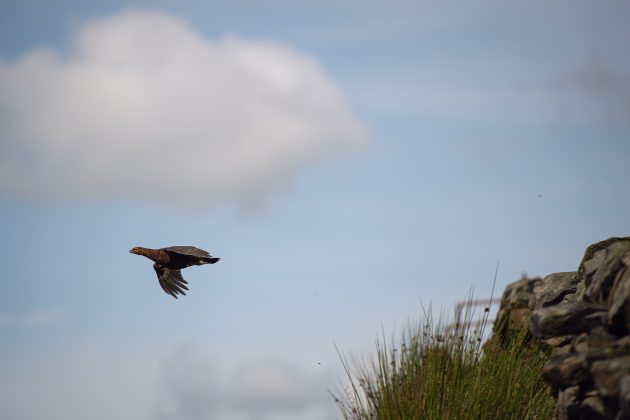A large majority of MPs rejected the Wild Justice petition to ban the sport and highlighted instead its contribution to the economy, the environment and the wellbeing of upland communities
Westminster recognised the value of driven grouse shooting when it debated a Wild Justice petition to ban the sport on Monday, June 21. Only two MPs supported a ban, with the rest acknowledging that grouse shooting helps preserve the upland landscape, supports ground-nesting birds such as lapwing, curlew and plover, contributes to wildfire prevention, and brings employment and social opportunities to moorland communities where jobs can otherwise be scarce.
“I believe that to ban grouse shooting would be an act of environmental, ecological and economic vandalism, not to mention a gastronomic disaster for many people in this country,” said Robert Goodwell, MP for Scarborough and Whitby, whose constituency includes about two-thirds of the North York Moors National Park. In particular, he pointed out that moor management not only creates the conditions for grouse to breed but also supports other species such as the merlin, whose numbers have doubled on grouse moors, while being halved elsewhere in the country.
Another Yorkshire MP, Kevin Hollingrake, also made the case that shooting supports the economy of remote moorland communities: “I really do not see where [people] would find other jobs in North Yorkshire to the level that they have. A huge number of people are employed in the hotels and restaurants and as caterers, beaters or gamekeepers. People from all different social strata are involved in the whole economy around the grouse moors and grouse shooting…The sector provides £2 billion to the UK economy and 1,500 full-time equivalent jobs. There are huge benefits to people in constituencies such as mine in terms of the wider economy and their wellbeing, so I do not accept that grouse shooting is bad for people.”
“We saw the strength of support within Parliament, not just for the conservation benefits of grouse-moor management that GWCT research has found, but also the social and economic benefits,” notes James Swyer of GWCT, which supplied evidence-based briefing documents to MPs ahead of the debate. “Those living and working in our uplands would have heard what they already know – well-managed moorland offers jobs, community and, most importantly, some of the world’s most precious habitats. Hopefully this support will encourage people to work to get and continue the success already shown in rising hen-harrier numbers.”
Unlike 2016, when the debate over a similar petition put forward by Eduardo Gonçalves of the League Against Cruel Sports nearly descended into a brawl, MPs kept their calm in what BASC’s uplands officer, Gareth Dockerty, sees as positive sign: “Lots of respect was shown and that should be applauded.”
Then, too, the majority of MPs supported shooting, but Dockerty believes the sport is in an even stronger position now than five years ago: “It’s obvious that there’s been clearer connection with what grouse shooting offers to constituents, local community and the economy, but also to broader government targets, regarding climate change and carbon capture: [it’s about] making sure that shooting is a solution for those big issues, but also making sure that government and decision makers start to see it as a key solution and not as an obstacle.”
That said, he fully expects renewed attempts to stop the sport, albeit perhaps under the guise of legal challenges, which have increased in number in the past years. “Mark Avery [from Wild Justice] clearly said he believes there is no point in dialogue, no point in debate; he feels that’s all been tried and there just needs to be a ban. I absolutely disagree. I think we are willing to communicate, to sit down, to compromise. As soon as the barriers go up, as soon as there is no dialogue, the situation only gets worse.”





